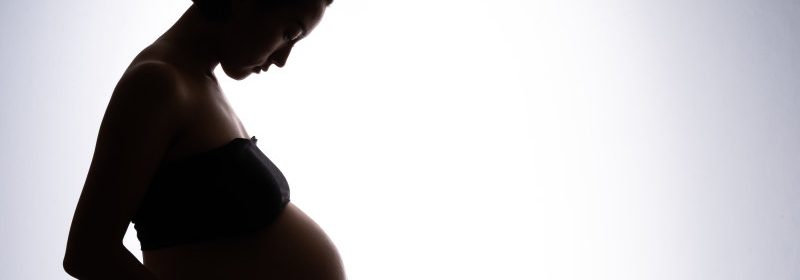Can drinking small amounts of alcohol during pregnancy change a baby’s face?

It is well known that heavy drinking while pregnant has a range of negative effects on an unborn child, and can disrupt development of the brain and other organs. What is less well known is the effects, if any, of drinking a glass of wine here or there throughout pregnancy.
As facial features are determined by brain development during the first trimester, the way a child looks can also be affected along with motor skills, behaviour and learning.
Small amounts of drinking throughout pregnancy may change the facial features of the child, study finds.Credit:Getty
A new study, published in the journal Human Reproduction, sought to understand whether low doses of alcohol during pregnancy changed children’s faces as they can be a reflection of overall health and development.
They found that drinking the equivalent of one glass of wine a week during pregnancy may make a difference to the way a child looks.
For the study, researchers from Erasmus University in Rotterdam asked women about their drinking habits in the three months before becoming pregnant, whether they drank alcohol during the pregnancy and, if so, the quantity and for how much of the pregnancy they drank.
After then collecting 3D photos of more than 3000 of the women’s children at age nine, they used an artificial intelligence algorithm to identify 200 traits on their faces. By comparing the pictures of children whose mothers didn’t drink at all to those who drank in the immediate lead-up to conception and to those who drank throughout pregnancy, they were able to see differences in facial features.
Even the children of women who said they drank just 12 grams (about a standard glass of wine or beer) each week in the three months before conceiving had slightly altered faces nine years later. The more the woman drank before and during pregnancy, the more marked these differences were.
Specifically, they found that children who were exposed to alcohol in the womb were more likely to have a turned-up nose tip, shortened nose, turned-out chin and turned-in lower-eyelids. By the time these children had turned 13, researchers found any changes were less obvious, which may be the result of hormonal and environmental influences.
Elizabeth Elliott is a professor of paediatrics at the University of Sydney and an expert in Fetal Alcohol Spectrum Disorder (FASD). She says that because little is known about the effects of small amounts of alcohol, this research is “really important” to show it can still have consequences.
“It has confirmed our previous findings,” says Elliott, who was an author on a 2017 paper, which also found an association between face shape and alcohol exposure at low levels.
She adds: “It’s a really contentious issue – will a little bit hurt?
“We don’t want to frighten people that if you have a glass you’re going to have a problem. We want to reassure them that there’s unlikely to be any problems. But on the other hand, we want to make people aware that there is evidence that small amounts can cause biological outcomes.”
Though the researchers controlled for potential confounders such as ethnicity, maternal age, maternal smoking in pregnancy, children BMI, age and gender, the study has limitations, says Dr Emmanuel Kuntsche, director of the Centre for Alcohol Policy Research at La Trobe University.
These include that the study didn’t control for other lifestyle factors and there is likely to be both recall bias (it can be hard to remember exactly how much or how often we have done something) and social desirability bias (where expectant mothers, in this instance, may under-report how much alcohol they have consumed for fear of being judged).
For these reasons, he is cautious to interpret the findings as causal.
“One glass of alcohol represents a certain risk, but the risk is very, very low,” Kuntsche says. “It’s with the second, third and so on glass that the risk increases exponentially.”
That, he says, applies to everyone, not just pregnant women and although women were the subject of this research, what dads do in the lead up to conception also matters.
“There is some evidence that paternal drinking may affect the unborn child,” adds Elliott. “We want to get the focus away from women and not blame them.”
Elliott explains that women drink for a number of reasons during pregnancy. These include stress, trauma and addiction as well as a perception that alcohol as low-risk and important for socialising.
Understanding the reasons and providing better support and education is essential, says Elliott, who highlights the importance of education campaigns like Every Moment Matters. On Wednesday, the National Aboriginal Community Controlled Health Organisation supported by the Foundation for Alcohol Research and Education, launched the Strong Born campaign aimed at raising awareness of the risks of drinking during pregnancy.
“There is no doubt that not drinking alcohol during pregnancy is the safest choice,” says Kuntsche. “So the conclusion of the authors is still true. However, it’s not only true for pregnant women, it’s actually true for every one of us … alcohol is a toxic substance and people forget that.”
Make the most of your health, relationships, fitness and nutrition with our Live Well newsletter. Get it in your inbox every Monday.
Most Viewed in Lifestyle
From our partners
Source: Read Full Article
